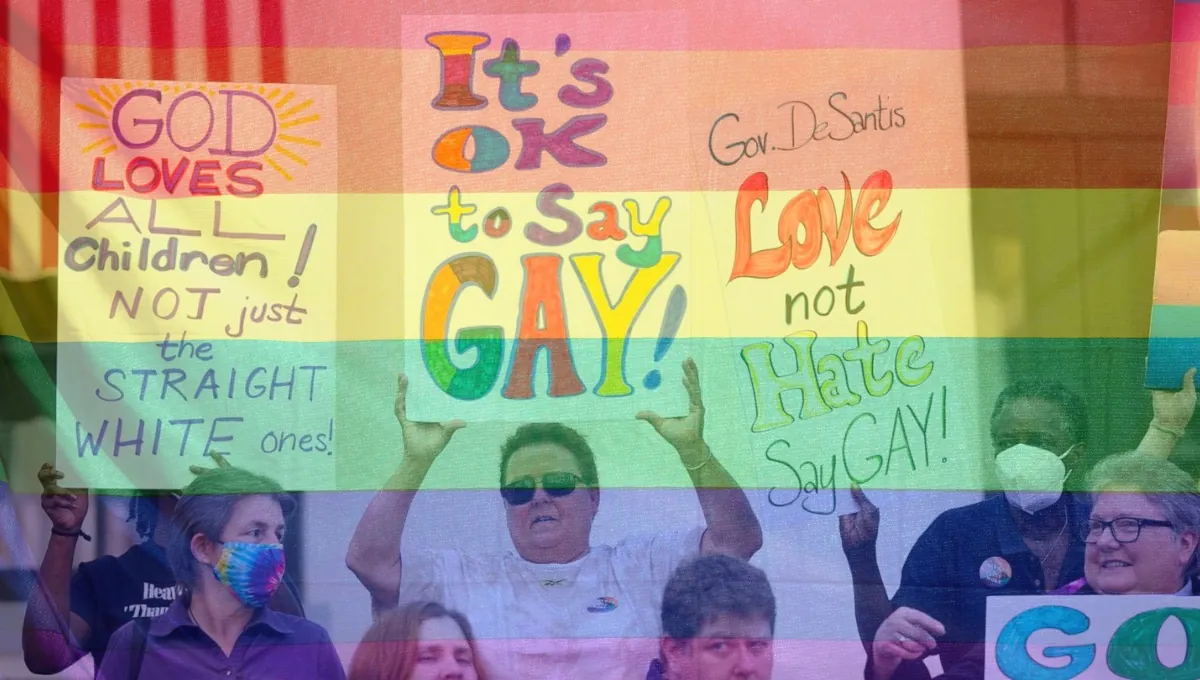Nestled amidst the foothills of the majestic Rockies, Boulder, Colorado, has been crowned the most LGBTQ-friendly city in the state! This vibrant university town, brimming with progressive spirit and breathtaking scenery, has long been a haven for the LGBTQ+ community. But what exactly makes Boulder stand out? Let’s dive into the reasons why it’s earned this prestigious title.
Boulder: A Legacy of Inclusivity
Boulder’s embrace of diversity dates back decades. In 1975, Boulder County Clerk Clela Rorex made history by issuing the first same-sex marriage license in the United States. This act of defiance sparked a ripple effect, propelling Boulder onto the national stage as a champion of LGBTQ+ rights.
A Tapestry of Acceptance:Boulder’s Pride
The city’s progressive leanings are woven into its very fabric. From its elected officials to its businesses and residents, Boulder fosters an atmosphere of acceptance and understanding. This is reflected in the city’s numerous LGBTQ+-owned and operated businesses, thriving nightlife scene, and a multitude of community organizations dedicated to supporting and empowering the LGBTQ+ population.
Boulder’s calendar is bursting with events that celebrate the LGBTQ+ community. The annual Boulder Pride Festival, a joyous explosion of color and inclusivity, attracts thousands of people from across the state and beyond. Other events like the Out Boulder Film Festival and the CU Boulder Queer & Trans Resource Center’s Lavender Graduation showcase the rich tapestry of LGBTQ+ talent and experiences.
A Haven for Families:
Boulder’s welcoming spirit extends to LGBTQ+ families. The city boasts excellent schools with inclusive policies, affirming healthcare providers, and a supportive network of family-oriented organizations. This creates a nurturing environment where LGBTQ+ parents and their children can thrive.
Of course, being “LGBTQ-friendly” goes beyond catchy slogans and rainbow flags. Boulder’s commitment to inclusivity is evident in its concrete actions. The city has a plethora of anti-discrimination ordinances in place, protecting LGBTQ+ individuals from housing discrimination, employment discrimination, and hate crimes. Additionally, Boulder invests heavily in social services and support programs specifically tailored to the needs of the LGBTQ+ community.
Deep Diving into Boulder’s LGBTQ+ Challenges: Beyond the Rainbow Flags
While Boulder undoubtedly shines as a beacon of LGBTQ+ inclusivity in Colorado, it’s crucial to acknowledge that no city exists in a perfect utopia. Beneath the vibrant Pride colors and progressive policies lie challenges that continue to impact the LGBTQ+ community within its borders. Let’s dive into some of the key areas demanding continued attention and action:
1. Affordable Housing:
Boulder’s breathtaking scenery and booming tech industry come at a price – astronomical housing costs. This disproportionately affects the LGBTQ+ community, particularly low-income individuals and families, forcing them to choose between staying in a welcoming environment and making ends meet. The lack of affordable housing options can lead to displacement, further marginalizing LGBTQ+ individuals and hindering their ability to fully integrate into the community.
2. Healthcare Disparities:
Despite Boulder’s strong healthcare infrastructure, accessing appropriate and affirming healthcare remains a challenge for some LGBTQ+ residents. This can stem from a lack of culturally competent providers, limited insurance coverage for transgender-specific care, and stigma surrounding seeking medical attention based on sexual orientation or gender identity. These disparities can lead to delayed diagnoses, inadequate treatment, and negative health outcomes for LGBTQ+ individuals.
3. Discrimination in Employment:
While Boulder boasts anti-discrimination ordinances, subtle forms of bias and prejudice can still persist in the workplace. Microaggressions, unconscious bias in hiring practices, and a lack of inclusive workplace cultures can create hostile environments for LGBTQ+ employees. This can lead to career stagnation, emotional distress, and feelings of isolation.
4. Discrimination Beyond the City Limits:
Boulder County, while generally progressive, encompasses diverse communities with varying levels of acceptance. LGBTQ+ individuals living outside the city center may face more overt discrimination in housing, employment, and public spaces. This highlights the need for broader societal change beyond Boulder’s borders to ensure truly inclusive experiences for all residents.
5. Mental Health Support:
Navigating the complexities of LGBTQ+ identity, combined with social stigma and potential discrimination, can significantly impact mental health. Access to LGBTQ+-affirmative mental health services remains crucial to addressing anxieties, depression, and other mental health challenges that members of the community may face.
6. Addressing Intersectionality:
The LGBTQ+ community is not a monolith. Members intersect with other marginalized groups based on race, ethnicity, disability, and socioeconomic status. This intersectionality amplifies the challenges they face and necessitates intersectional strategies in policy and support services to ensure no one is left behind.
7. Combating Hate Crimes:
While hate crimes are less prevalent in Boulder compared to other areas, they still occur and can have devastating consequences. Increased vigilance, reporting mechanisms, and community education are essential to creating a safe environment free from violence and intimidation for all.
8. Engaging Rural Communities:
LGBTQ+ individuals living in rural areas within Boulder County often feel further isolated and lack access to resources and support networks readily available in the city. Engaging these communities, ensuring inclusive outreach, and developing targeted support programs are crucial to fostering inclusivity throughout the county.
9. Fostering Youth Resilience:
LGBTQ+ youth are particularly vulnerable to bullying, social isolation, and mental health challenges. Creating safe spaces in schools, providing access to affirming resources, and educating adults about supporting LGBTQ+ youth are crucial to fostering resilience and promoting healthy development.
10. Ongoing Education and Training:
Combatting unconscious bias, promoting cultural competency, and educating the broader community about LGBTQ+ experiences are critical steps towards achieving true inclusivity. Ongoing training for healthcare providers, employers, educators, and other community members can create a more supportive and understanding environment for everyone.
Conclusion
Despite these challenges, Boulder’s unwavering commitment to inclusivity offers a beacon of hope for LGBTQ+ individuals across the state and beyond. The city’s progressive spirit, thriving LGBTQ+ scene, and dedication to concrete action serve as a model for other communities striving to create welcoming environments for all.
So, if you’re seeking a city that celebrates diversity, champions LGBTQ+ rights, and offers a vibrant and supportive community, look no further than Boulder, Colorado. This Rocky Mountain gem is more than just a beautiful place to live – it’s a testament to the power of inclusivity and a shining example of what a truly LGBTQ-friendly city can be.
Additional Resources:
- Boulder County Housing Authority: https://bouldercounty.gov/families/housing/housing/
- Colorado Housing Watch: https://www.cbsnews.com/colorado/video/denver-meets-goal-of-housing-1000-unhoused-people-before-2024/
- National Low Income Housing Coalition: https://nlihc.org/
Also Read:
- Floridas Top LGBTQ-Friendly City Revealed -Is Your City on the List?
- Why This North Carolina City Tops Rape Statistics: Devastating Ranking
- Is This Tennessee City Named as the Rape Capital of the State?




